Damascus folding knives are prized for their exquisite craftsmanship, durability, and unparalleled beauty. To ensure these cherished tools retain their elegance and functionality for years to come, proper care and maintenance are essential. In this blog, we’ll explore the ins and outs of daily care and maintenance for Damascus folding knives, providing you with expert tips to keep your prized possession in pristine condition.
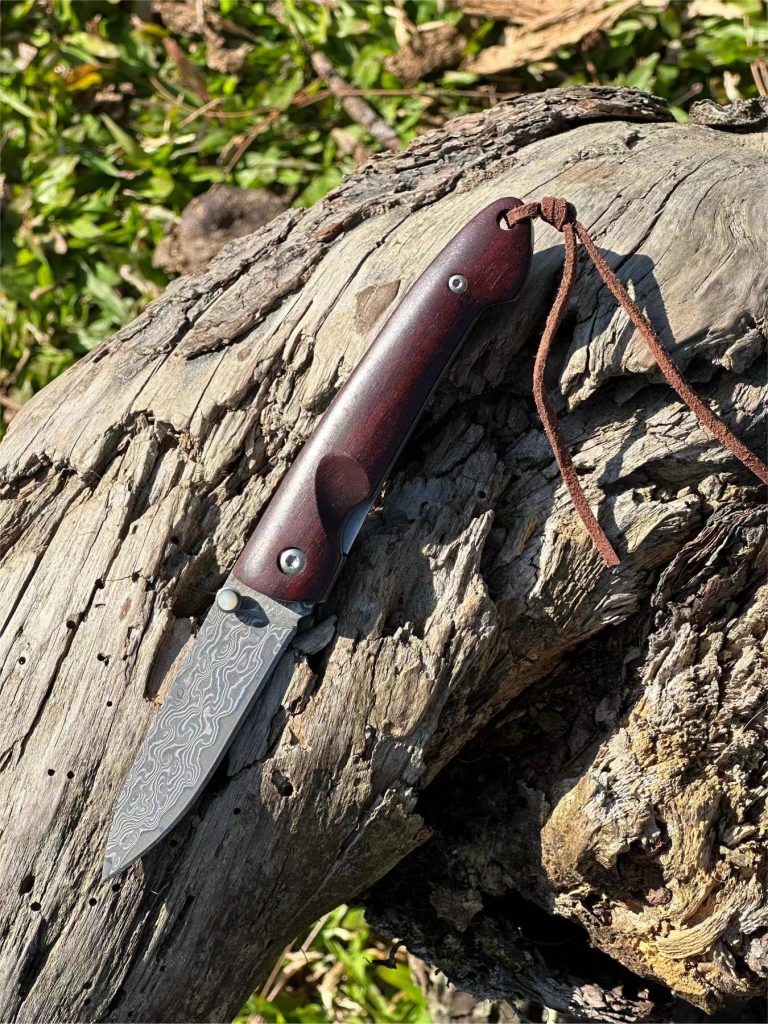
1. Regular Cleaning:
After each use, gently clean the blade and handle of your Damascus folding knife with warm water and a mild detergent to remove any dirt, grime, or fingerprints.
Use a soft cloth or sponge to avoid scratching the delicate Damascus patterns.
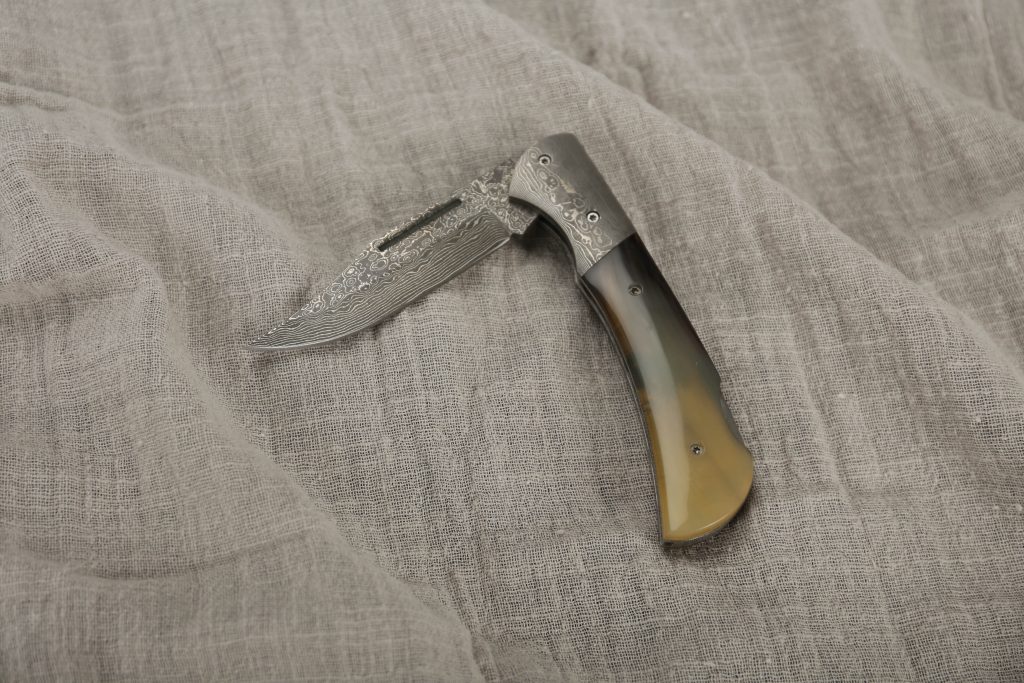
2. Drying and Lubrication:
Thoroughly dry the knife with a clean, dry cloth to prevent water spots and corrosion.
Apply a thin layer of high-quality knife oil to the blade and pivot points to lubricate moving parts and protect against rust and corrosion.
3. Storage:
Store your Damascus folding knife in a dry, well-ventilated area to prevent moisture buildup.
Consider using a protective sheath or pouch to shield the blade and prevent accidental damage.
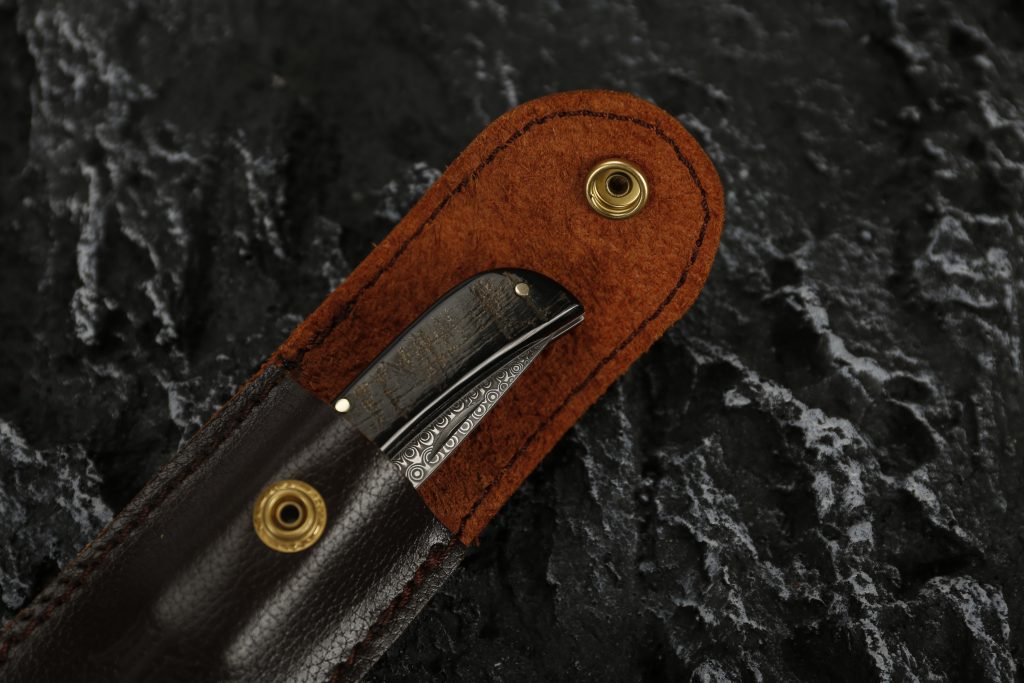
4. Avoid Harsh Conditions:
Avoid exposing your Damascus folding knife to extreme temperatures, high humidity, or harsh chemicals, as these can damage the blade’s finish and integrity.
Never leave your knife soaking in water or exposed to corrosive substances for an extended period.
5. Regular Inspection:
Periodically inspect your Damascus folding knife for any signs of wear, damage, or corrosion.
Pay close attention to the blade edge, pivot points, and handle scales, and address any issues promptly to prevent further damage.
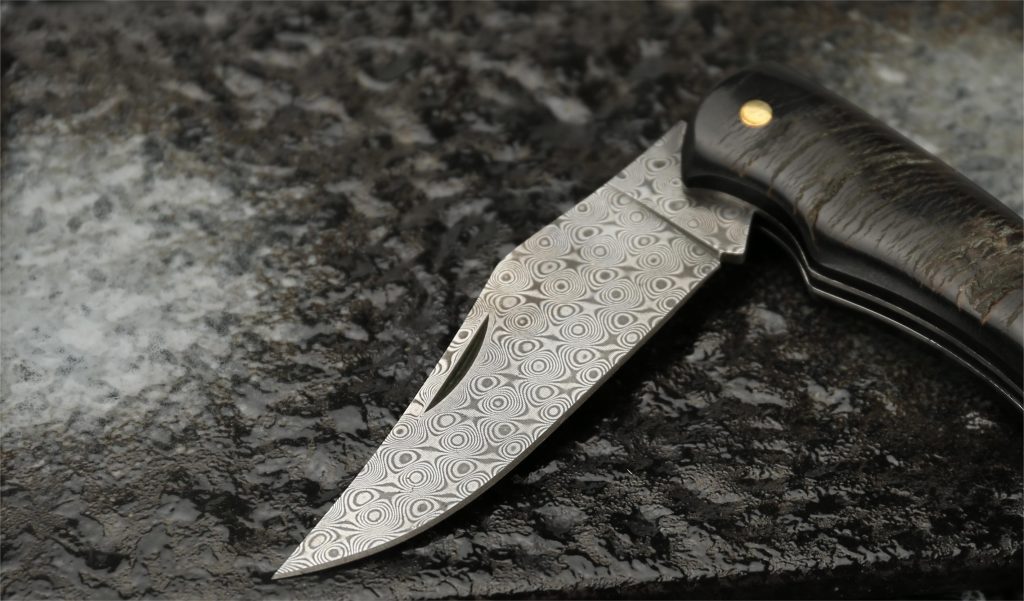
6. Sharpening and Maintenance:
Regularly sharpen the blade of your Damascus folding knife using a sharpening stone or honing rod to maintain its sharpness and cutting performance.
Check and tighten any loose screws or pivot points to ensure the knife operates smoothly and securely.
To maintain the beauty and functionality of your Damascus blade, it’s essential to apply wax regularly. Here’s why:
1)Carbon Content: Most hand-forged Damascus blades are crafted from high carbon steel, which has relatively low chromium content. Chromium is crucial for steel’s resistance to corrosion and oxidation. Therefore, carbon steel Damascus blades are prone to rust if not properly maintained.
2)Preventing Rust: To prevent rust or discoloration, it’s vital to keep the blade clean and dry. After cleaning and drying, apply wax to lubricate the blade. This protective layer of wax shields the blade from moisture and prevents rust formation, while also maintaining the beauty of its etching.
3)Stainless Steel Damascus: Some Damascus blades are made of stainless steel, which contains a higher chromium content (at least 11%). While stainless steel is inherently rust-resistant, applying wax adds an extra layer of protection and keeps the blade looking its best.
In summary, whether your Damascus blade is made of carbon steel or stainless steel, applying wax regularly is a simple yet effective way to preserve its beauty and prevent rust. By incorporating this maintenance step into your routine, you can ensure your Damascus blade remains in top condition for years to come.
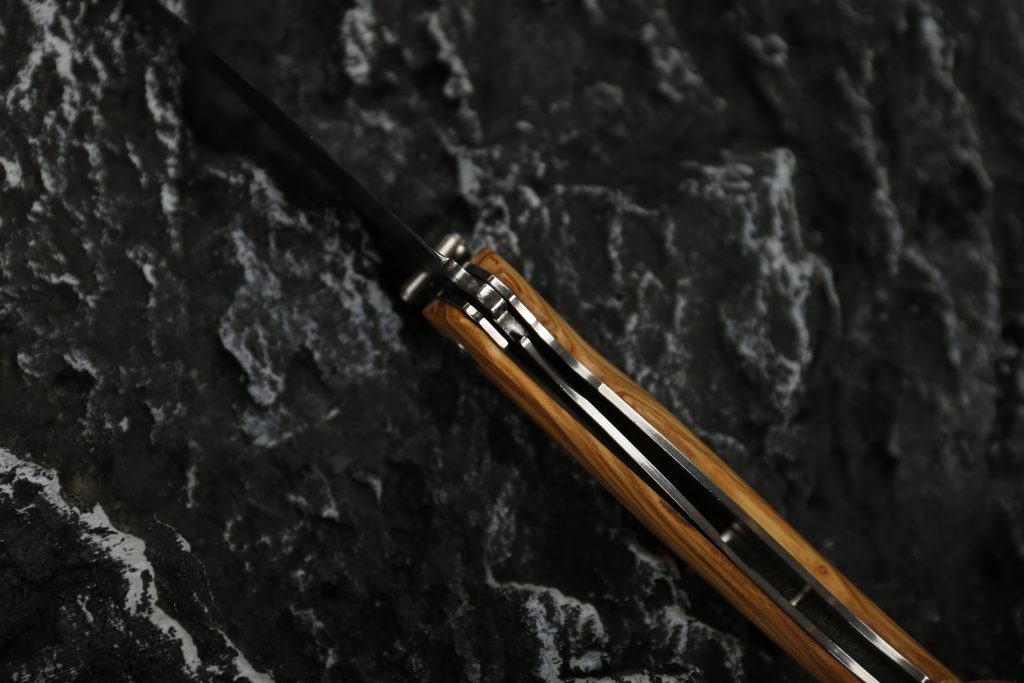
7. Professional Maintenance:
If your Damascus folding knife requires extensive cleaning, maintenance, or repair, consider seeking the assistance of a professional knife maker or technician.
They have the expertise and tools to properly care for and restore your knife to its original condition.
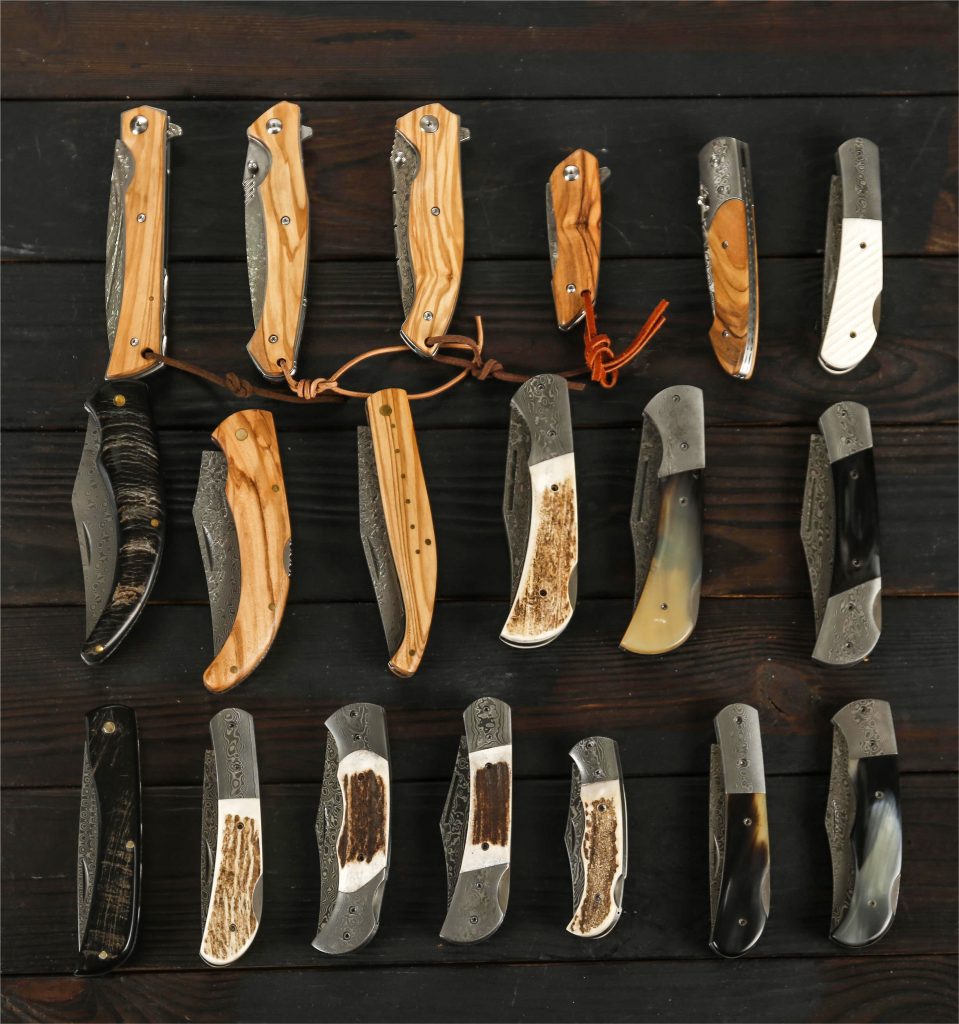
Proper care and maintenance are essential for preserving the beauty and functionality of your Damascus folding knife. By following these expert tips, you can ensure your prized possession remains a cherished companion for years to come. With regular cleaning, drying, lubrication, storage, and inspection, your Damascus folding knife will continue to delight and serve you in your daily tasks and adventures.